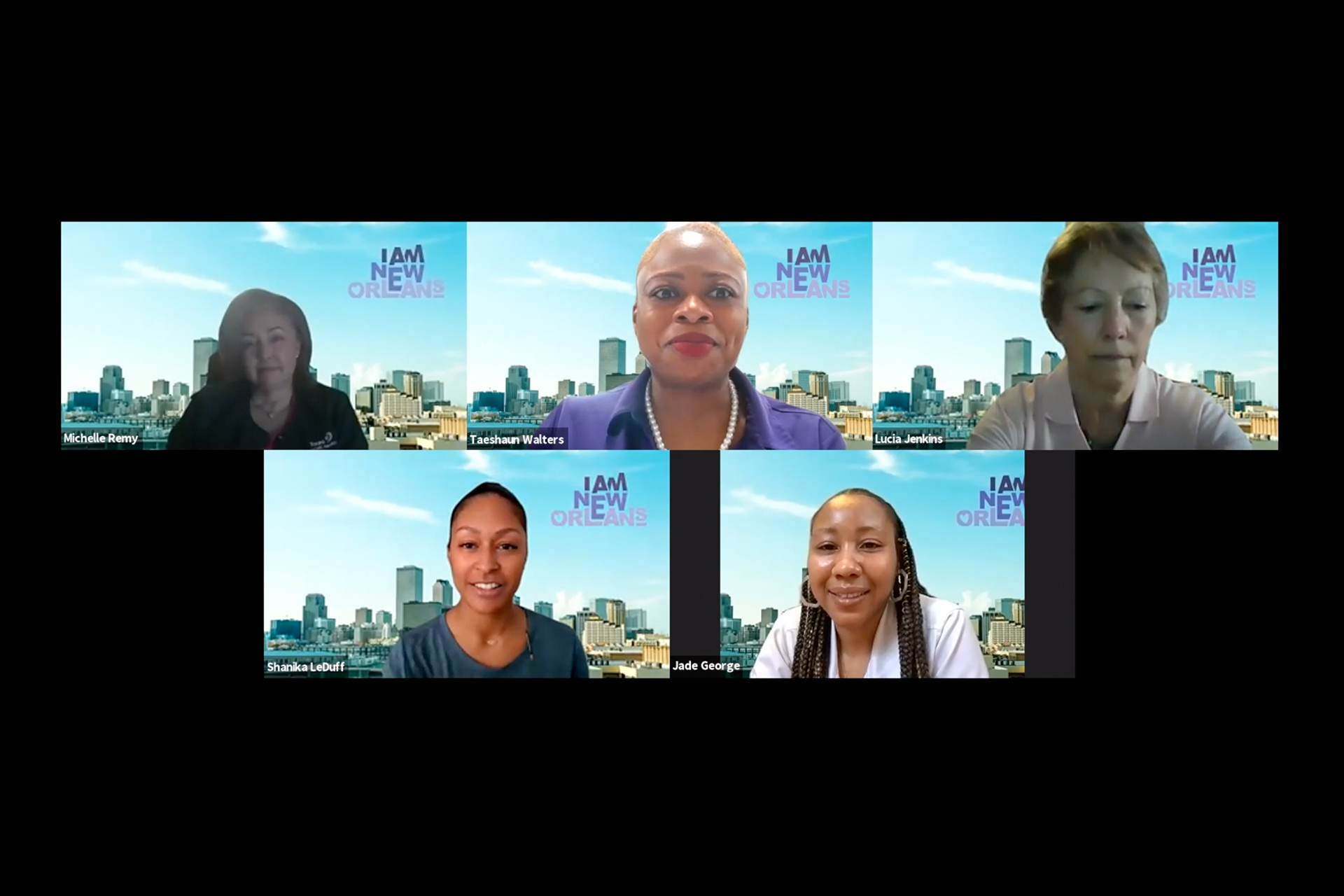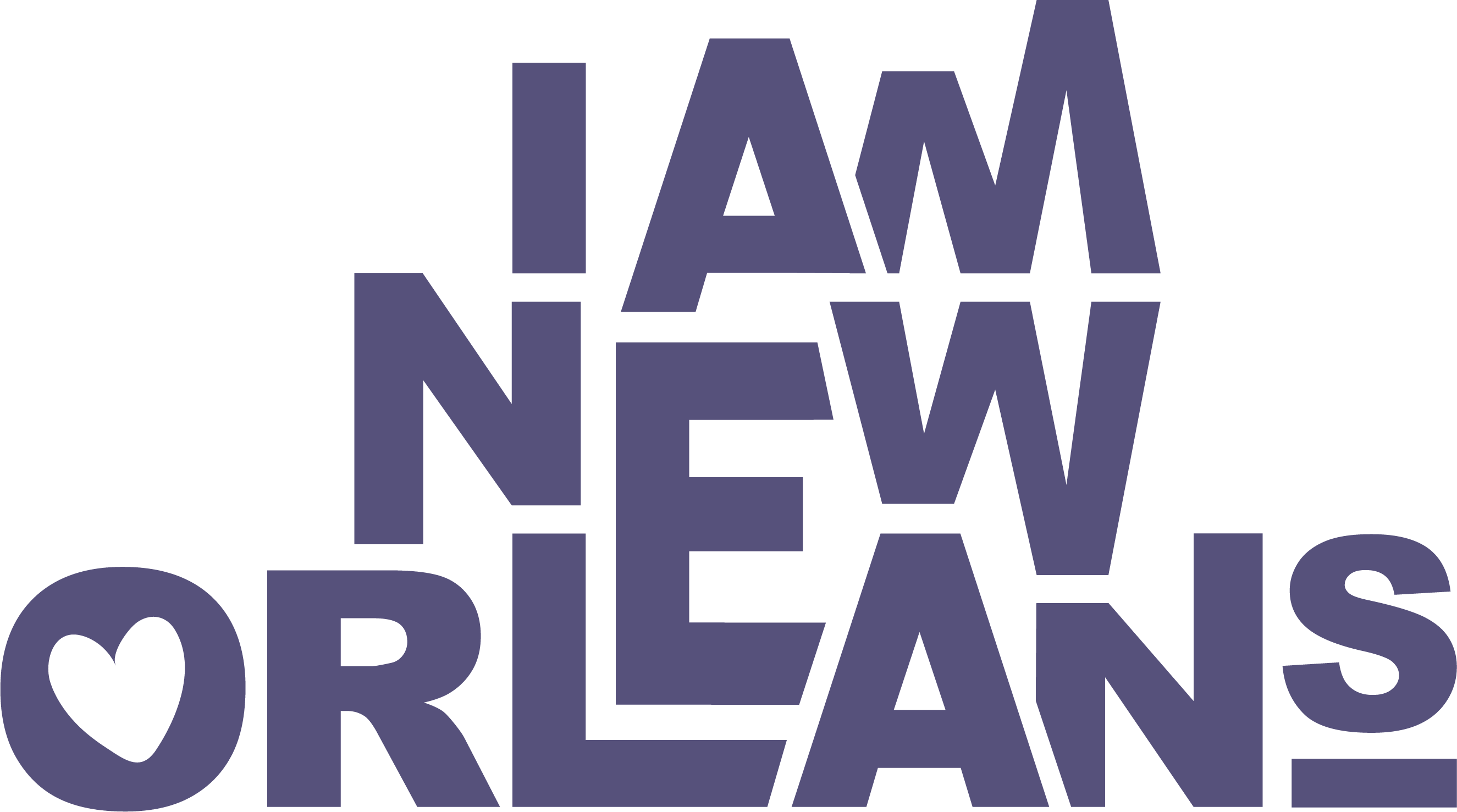Lactation Consultants –
A Labor of Love
“There’s nothing we do that we expect to get right the first time,” Jade George, a lactation counselor and doula at Nola Baby Café, said during a panel conversation focused on the importance of lactation consultants in supporting breastfeeding moms and babies. “Breastfeeding is like riding a bike. It’s something we learn. It’s knowing I could use a little support and allowing yourself to get that support.”
George was joined by local and national lactation experts to discuss the benefits of breastfeeding and the important role lactation consultants play in helping to reduce racial disparities in health among moms and infant mortality rates of babies of color. The virtual conversation was part of I Am New Orleans, a year-long, community-led conversation series to inspire dialog and action around key issues of racial equity. The conversation was moderated by Taeshaun Walters, a certified lactation counselor and parent educator at WE PLAY Center and Nola Baby Cafe’.
According to the Centers for Disease Control, nearly two-thirds of moms breastfeed. But those numbers are less for women of color, namely Black and Latinas.
“It begins with a decision during pregnancy. When you’re pregnant you have to decide ‘how am I going to feed this baby?’“ said Michelle Remy, a registered nurse and lactation consultant at Touro LCMC Health.
“Breastfeeding is like riding a bike. It’s something we learn. It’s knowing I could use a little support and allowing yourself to get that support.”
Jade George Tweet
But women, especially women of color, face many barriers: from cultural norms to lack of workplace supports. And while lactation consultants are lauded for helping moms navigate those barriers, they’re not always visible or accessible. For example, not all hospitals allow certified lactation consultants who are not registered nurses to be in the hospitals – meaning there are fewer consultants in the hospitals to support women. More importantly, there are fewer consultants of color, which is critical to increasing the breastfeeding rates among women of color.
“Remember not all communities have the generational history of breastfeeding,” said Shanika Valcour-Leduff, a family nurse practitioner and founder of Labor and Love “…We have to be visible, available to moms and babies.”
Added George: “(Breastfeeding my son). That was my first rebellion. And it shouldn’t be a rebellion. It should be my choice. But in my community, it was a rebellion. Struggling to feed your baby is the most unimaginable fear.”
Other barriers, the panelists noted, are the costs of becoming a certified lactation consultant, the instability of funding for lactation support programs and the pay for lactation consultants.
“Look at how we exclude women from roles they are fantastically suited for,” said Lucia Jenkins, a registered nurse and founder and executive director of Baby Café USA. “A woman in the community who has breastfed five (children) … we have to be careful not to exclude the people we desperately need to make a cultural change.”
Jenkins said data shows communities with breastfeeding supports have higher breastfeeding rates, which offer long-term health benefits for moms and babies. She said she designed Baby Café USA to offer expert care, while also being flexible to the community’s needs and resources. There are now 158 Baby Cafés in 34 states.
The panel on lactation consultants is the first of three conversations focused on maternal and child health. Listen here to a recording of this panel and register here to join upcoming conversations in August and November.
Editor’s note: Our panel conversations offer Spanish and Vietnamese translations. Café con Leche in New Orleans offers Spanish-speaking breastfeeding support and meets virtually on the first Tuesday of every month. For more information about Café Con Leche, text LECHE to 77948 or join their Facebook group.

Full panel discussion
Related Links
- Baby Café USA
- Labor and Love
- CDC Louisiana Report on Maternity Practices in Infant Nutrition & Care (2018)
- New Orleans Breastfeeding Center Resources
- New Orleans Area Breastfeeding Support
- Nola Baby Café
- Preparing for the IBCLC Certification
- Racial Disparities in Breastfeeding Initiation and Duration Among U.S. Infants Born (2015)
- Touro LCMC Health
- WE PLAY Center

